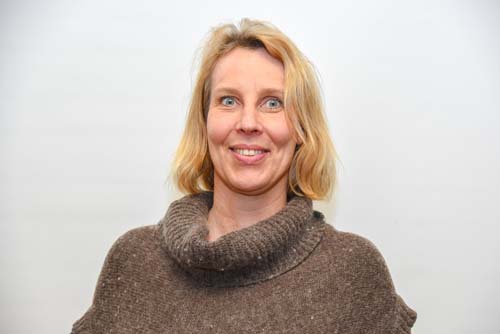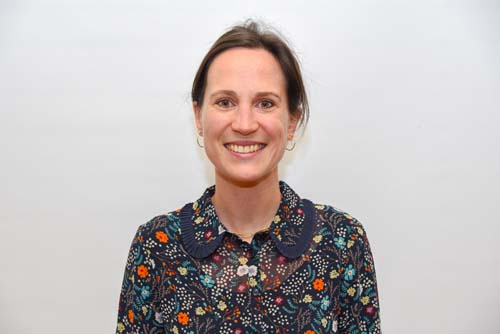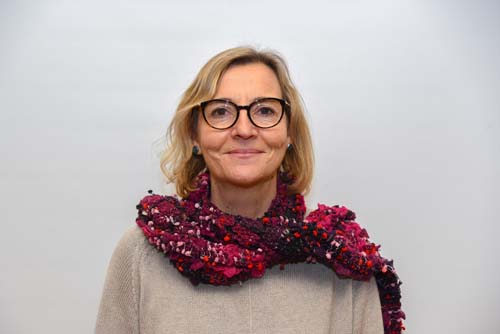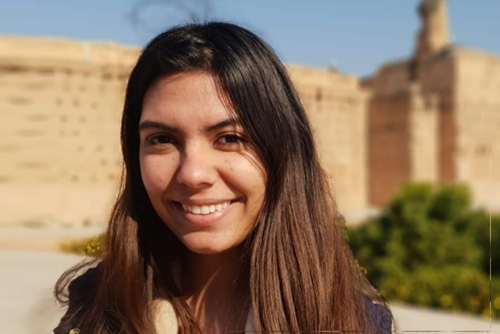
To address concerns about the negative environmental impacts resulting from intensive agriculture, agri-environmental policies are designed to provide financial aid to farmers who are willing to voluntarily adopt pro-environmental practices. Conceptual and empirical analysis is required to understand how to promote ecologically-innovative agricultural practices and to design payment schemes inducing the provision of ecosystem services. First, there is a need to assess the impact of payment schemes that were implemented in the past, as little is known about the actual effectiveness of such programs. Second, the design of innovative instruments is required to address economic and environmental inefficiencies resulting from existing schemes.
This research group tackles these challenges by relying on research expertise in applied econometrics, structural econometrics, experimental economics and incentive theory. More specifically, we use experimental and quasi-experimental methodologies as well as contract theory.
Research works are focused on two main priorities. The first one is related to the impact of agri-environmental policies that were implemented in the last decade in Europe and in tropical areas. The most recent micro-econometric methods are used to assess the potential inefficiencies resulting from these initiatives. The second priority focuses on the design of innovative instruments that better account for global changes and for constraints borne by potential providers of environmental services.
Faculty members
Ph.D Students & Post-docs
Staff
Beyond Reducing Deforestation: Impacts of a REDD+ Project on Household Livelihoods
Multi-country perspectives on best practicesand barriers to preference elicitation lab-in-the-field experiments with farmers
Protecting crops with plant diversity: Agroecological promises, socioeconomic lock-in, and political levers
How Sentinel-1 timeseries can improve the implementation of conservation programs in Brazil
Améliorer les outils numériques d’aide à la décision pour la protection phytosanitaire des cultures
The private management of plant disease epidemics: infection levels and social inefficiencies
PAC 2023-2027 : applications et effets redistributifs de la surprime dans les États membres de l’UE
L’application de la PAC en France est-elle favorable au développement de l’intégration culture-élevage dans les territoires ?
Can collective conditionality improve agri-environmental contracts? From lab to field experiments
Services provided by multifunctional agroecosystems: Questions, obstacles and solutions
Nudging and Subsidizing Farmers to Foster Smart Water Meter Adoption
Using publicly available remote sensing products to evaluate REDD + projects in Brazil
Farmers' risk preferences in 11 European farming systems: A multi‐country replication of Bocquého et al. (2014)
Ex post analysis of the crop diversification measure of CAP greening in France
Why does France not meet its pesticide reduction targets? Farmers? socio-economic trade-offs when adopting agro-ecological practices
Risk-taking and skewness-seeking behavior in a demographically diverse population
Performances économiques et environnementales des petites exploitations agricoles françaises
Enhancing spatial coordination in payment for ecosystem services schemes with non-pecuniary preferences
Impact of private labels and information campaigns onorganic and fair trade food demand
- Funding : 75,000 € Région Occitanie Appel à projets Recherche et société(s)
- Duration : 2018 – 2020
- Contact : PREGET Raphaele
Les nouvelles technologies offrent de nouveau moyens pour améliorer la gestion des ressources en eau dans les territoires. Pour donner leur pleine mesure, elles doivent cependant s’accompagner de modification des comportements individuels et collectifs. Cela requiert une compréhension fine des effets de comportement (mimétisme, norme sociale, etc.) de manière à pouvoir proposer des dispositifs innovants pour renforcer l’efficacité de l’action publique et pour améliorer son acceptabilité et sa légitimité. Ce projet propose trois directions d’analyse 1/ évaluer l’impact des compteurs communicants sur la consommation individuelle des agriculteurs, 2/ proposer et évaluer des « interventions » utilisant les compteurs communicants pour réduire la consommation individuelle des agriculteurs, 3/ identifier des mécanismes efficaces pour inciter à l’adoption volontaire de compteurs communicants par les irrigants. Le projet est fondé principalement sur des approches d’économie comportementale, et il s’appuie sur l’expertise technique de la Compagnie d’Aménagement des Coteaux de Gascogne (CACG) en matière de gestion territoriale de l’eau. Les analyses empiriques seront conduites sur les cas d’études situés en région Occitanie, en concertation avec la CACG, partenaire technique du projet.
- Funding : 42,000 € Fondations Cariplo et Agropolis
- Duration : 2019 – 2020
- Contact : THOYER Sophie
In the near future, the CAP will undergo through a process of change and restructuring, both for the need to revise and reform its policy instruments and to account for the outcomes of EU budget reshape. As a first step, the EU Commission is gathering stakeholders’ comments and suggestions on its document “Communication on Modernizing and Simplifying the CAP”, prefiguring five possible development options for the future CAP. In this context, the CAPTION Project aims at contributing to such debate, providing scientific-based evidence on current impact of CAP and giving insights on innovative policy tools. Such kind of analysis is particularly relevant for examining and monitoring the new policy tools (greening payment) implemented in the current CAP programming period 2015-2020. Furthermore, the project provides possible alternatives with respect the current policy instruments in order to tackle the issues not properly covered by them. The research project includes two distinct Work Packages (WP). WP1 focuses on the implementation of a series of impact evaluations of the economic and environmental effects of the current 2015-2020 CAP, in support of drafting scenarios and simulations for the post-2020 CAP. WP2 focuses on a specific category of farms not or partly involved in the implementation of the CAP: the small farms.
- Funding : ANR
- Duration : 2023-2028
- Contact : BOUGHERARA Douadia
CoEDiTAg aims to understand the co-evolution between the development trajectories of Digital Equipment and Technologies (DEiTs) and the transformations of the agricultural sector. The direction of this coevolution depends on the strategies of the players and their interactions..
- Funding : CIFOR
- Duration : 2017 – 2019
- Contact : SUBERVIE Julie
In this project, we use the introduction of the first PES-based REDD+ project ever launched in Brazil by a Non-Governmental Organization in the region of Para in 2012 as a natural experiment in order to evaluate the long-run impact of this project.
In particular, we focus on the permanence of the effects of this REDD+ project by collecting new data from the baseline sample, about three years after the PES program starts.
This study is financed and undertaken in close collaboration with the Center for International Forestry Research (CIFOR), as part of its Global Comparative Study (GCS) on REDD+, and with the Brazilian non-governmental organization in charge of the implementation of the PES program, the Amazon Environmental Research Institute (IPAM).
- Funding : Agropolis Fondation and Total Foundation (Project 1802-001)
- Duration : 2019 – 2023
- Contact : BOUGHERARA Douadia PREGET Raphaële THOYER Sophie
Questioned on the 4/1000 initiative on soil carbon (C) sequestration to face climate change (CC), several Labex Agro units and their partners propose to pull together their research capacities in order to provide new insights in soil C sequestration, the DSCATT project proposes to explore the potential for sequestering C in cultivated soils, taking into account the sustainability of agricultural practices in the context of global changes. DSCATT operates at 4 sites (in Senegal, Zimbabwe, Kenya, and France). The project addresses 3 interrelated scales of fields, farms or territories. CEE-M contributes to work package 3 “socioeconomic, policy and environmental levers for long-term soil C sequestration at the territory level” aiming to analyse innovative policy instruments to trigger the necessary changes in farming practices that increase C storage in soils.
See website
- Funding : Growing and protecting crops differently
- Duration : 2021 – 2027
- Contact : SUBERVIE Julie
The objective of this project is to offer concrete solutions, both political and organisational, that decision-makers and stakeholders can implement directly. The effectiveness of each proposal will be assessed through laboratory and field studies, action research approaches, and large-scale simulation models.
The project is coordinated by Julie Subervie, from the Centre for Environmental Economics in Montpellier (CEE-M), and congregates a wide variety of researchers on economy, sociology, law, and even on management sciences. Sixteen INRAE research units have collaborated with the project, together with associated universities and partners from other higher institutions in the field of agronomy.
See website
- Funding : MUSE I-SITE
- Duration : 2020 – 2023
- Contact : SUBERVIE Julie
Curbing deforestation in developing countries may be a cost-effective way to reduce carbon emissions and address climate change. But how to prevent the deforestation of forest lands in areas where landowners depend, for their livelihood, on slash-and-burn agriculture and extensive cattle ranching, two primary drivers of deforestation? The dilemma of food security and climate change in the Brazilian Amazon has been a major concern of the international community for many years now and a variety of solutions has been considered. For some years, offering payments for environmental services (PES) contracts to small landowners has emerged as a potential strategy that may achieve both food security and conservation goals in Brazil. Despite the incentives they offer, however, voluntary PES programs may not be effective in curbing deforestation rates at the end.
The Forest4Food project aims at providing answers to three major questions concerning the effectiveness of this type of program: To what extent can voluntary PES programs contribute to avoid deforestation while maintaining food security? Can one design PES contracts that solve the problem of selection effect? Can one further improve the efficiency of PES contracts by including a conservation target determined according to individual opportunity costs?
- Funding : ANR (Agence Nationale de la Recherche) ANR-16-CE32-0011
- Duration : 2016 – 2020
- Contact : SUBERVIE Julie
In order to strike the right balance between agriculture and the environment, policymakers in both developed and developing countries are increasingly resorting to Payments for Environmental Services (PES).
PESs are contracts between a farmer and the government in which the farmer receives a payment in exchange for the adoption of greener practices. PES programs usually aim to tackle major current environmental issues but can be expensive. It is thus critical to provide credible evaluations of their effectiveness.
Yet, evidence on their impact remains scarce.
This project aims to fill this gap by using modern econometric methods, such as experimental and quasi-experimental techniques, to provide the first evidence-based evaluations ever made for a series of agri-environmental programs in France: the French program to reduce the use of pesticides, the French grassland conservation programs, two pilot programs based on nudges, one aimed at encouraging biological control in viticulture and the other to reduce the consumption of agricultural water
- Funding : 110,000 € FEDER-FSE Languedoc-Roussillon 2014-2020
- Duration : 2018 – 2020
- Contact : THOYER Sophie
Comment bien appréhender la gestion des masses d’eaux superficielles et souterraines, des risques associés à leurs usages, et l’agroenvironnement dans un contexte de changements globaux ?
Ce projet vise à proposer et à tester sur le terrain des mesures innovantes pour améliorer l’adoption de pratiques agricoles plus respectueuses de la qualité de l’eau. Il permettra (1) de proposer des mesures innovantes ; (2) de mener des évaluations ex-ante pour identifier les mesures les plus pertinentes ; (3) de proposer des dispositifs de suivi-évaluation et des protocoles d’expérimentation sociale pour évaluer expost l’impact de la mesure en construisant une situation contrefactuelle. Il vise à valoriser les résultats acquis par l’économie comportementale et expérimentale pour améliorer l’efficacité des plans d’actions agro-environnementaux.
- Funding : INRA-SAE2 (projet jeune chercheur)
- Duration : 2018 – 2019
- Contact : SAUQUET Alexandre
The use of fertilizers in agriculture is one of the main source water pollution. The use of cover crops after harvesting the main crop allows reducing the transfer of nitrates to groundwater during the rainy season. In France, from 2000 to 2014, two measures encouraged cover cropping: one is regulatory (through the nitrates directive), one is market-based (agro-environmental schemes of the common agricultural policy). Our purpose is to study which one, or which combination, of the two measures allowed the widest adoption of the cover cropping practice. To this end, we develop an analytical framework and test formulated hypotheses using micro-econometrics methods applied on farm-level data.
- Funding : 110,000 € FEDER-FSE Languedoc-Roussillon 2014-2020
- Duration : 2018 – 2020
- Contact : THOYER Sophie
Comment bien appréhender la gestion des masses d’eaux superficielles et souterraines, des risques associés à leurs usages, et l’agroenvironnement dans un contexte de changements globaux ?
Ce projet vise à proposer et à tester sur le terrain des mesures innovantes pour améliorer l’adoption de pratiques agricoles plus respectueuses de la qualité de l’eau. Il permettra (1) de proposer des mesures innovantes ; (2) de mener des évaluations ex-ante pour identifier les mesures les plus pertinentes ; (3) de proposer des dispositifs de suivi-évaluation et des protocoles d’expérimentation sociale pour évaluer expost l’impact de la mesure en construisant une situation contrefactuelle. Il vise à valoriser les résultats acquis par l’économie comportementale et expérimentale pour améliorer l’efficacité des plans d’actions agro-environnementaux.
- Funding : PRIMA
- Duration : 2021 – 2024
- Contact : BLAYAC Thierry – LAVAINE Emmanuelle – ROUSSEL Sébastien
ReCROP aims to redesign Mediterranean agrosystems with improved resilience capacity and higher productivity, focusing on the development of sustainable agricultural production systems through the combined use of biotechnological tools and environmentally friendly agronomic practices. This will allow farming systems to face climate change through the improvement of below and aboveground biodiversity, fertility, and water conservation. RECROP uses the novel approach of plant-microorganism management that relies on the increase of soils functions and health by using bioinocula, amendments, cropping systems, and climate-ready crops, to increase crop yields while providing ecological services, e.g., increasing carbon sequestration, organic matter, nutrient cycling and water conservation. ReCROP covers the Mediterranean Geographical Area (MGA), involving Morroco, Egypt, Tunisia (South MGA), Italy and France (North MGA), and Portugal and Spain (West MGA), and incorporates major crops cultivated in these countries – vineyards, cereals, and aromatic/medicinal plants. CEE-M’s contribution will focus on characterizing from a socioeconomic point of view the main drivers to encourage farmers to switch towards greener practices and promote their acceptability, and fostering innovative sustainable solutions for ecological farming systems involving the views of local stakeholders and providing guidelines to improve the resilience of Mediterranean target crops.
- Funding : I-Site MUSE
- Duration : 2019 – 2021
- Contact : ROUSSEL Sébastien
The TYPOCLIM project is focused on policy instruments to facilitate agricultural adaptation to Climate Change (CC). The TYPOCLIM project aims at developing a baseline descriptive typology of policy instruments designed to facilitate agricultural adaptation to CC based on mapping of existing instruments at eight study sites in developing countries (South Africa, Senegal, Brazil and Colombia) and developed countries (Catalonia-Spain, California-USA, Occitanie-France and Guadeloupe-France) / several agricultural sectors (viticulture, horticulture – mangos – and market gardening), which in turn are subject to different climate shocks (irregular growing seasons, excessive heat, water shortages, etc.), and at assessing the different performances of public policy instruments that promote the adaptation of diversified agricultural areas to CC. By focusing specifically on policy instruments, the TYPOCLIM project will carry out interdisciplinary research—combining political science, economics, sociological, geographical, biological and agricultural analyses—to shed fresh light on existing policy instruments
Our contribution mainly relies on the analysis of the extent to which farmers would be ready to adopt the most efficient policy instruments to cope with CC. This will involve determining farmers’ preferences with regards to the adoption of policy instruments through experimental methods


























